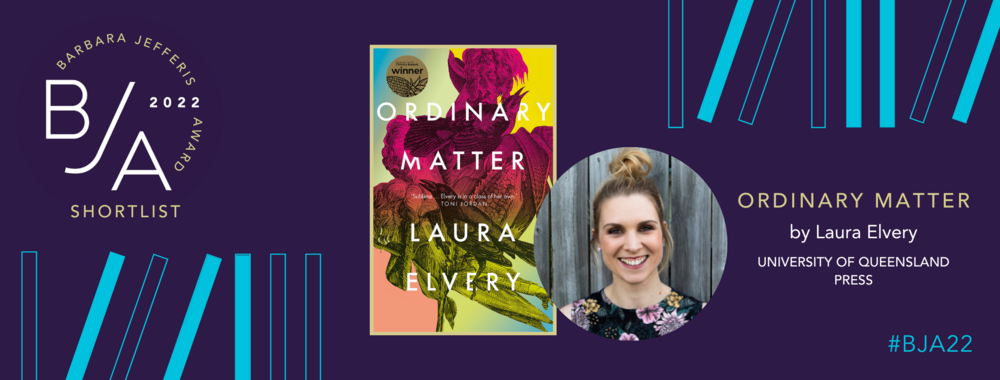7.09.22

How did you start writing?
I decided to step away from high school teaching to do a Master of Creative Industries at QUT. This was about ten years ago. Initially, I’d pictured it as a break, just for a while, but I loved being in class as a student again, and reading and listening to tutorials, and handing in creative writing assignments. Then I moved onto a PhD and whenever I had some downtime, I got into the habit of drafting short stories to submit to all these new journals and prizes I was discovering. It felt like I had time to learn so much and discover writers I’d never read before.
What inspired you to write Ordinary Matter?
I was looking for a new project after Trick of the Light was published. The title story in that book is told from the POV of a fictionalised ‘Radium Girl’ who mentions Marie Curie. Because I’d written the character noting Curie so lightly, and I didn’t know a lot about her at that stage, I was still interested in that whole world. My Marie Curie kick led me to a Nobel Prize kick. When I saw how small the number of women who had won prizes in science was compared to men, my brain kicked into ‘this could be a project’. And then I had to solve the problem of how I would, in fact, do it.
What was your writing process like for this book - what were the most challenging and enlightening aspects of writing it?
The only Australian woman in Ordinary Matter, Elizabeth Blackburn, was my entry point. Hers is the longest story in Ordinary Matter and was the first I wrote. From there I mapped out every story, writing over several years. For each woman I was looking for a moment in her life that sparked my interest, like in the story for Dorothy Hodgkin. Or a key part of her research – like in the stories for May-Britt Moser and Tu Youyou. I loved spinning away from the obvious bits to invent a story with each woman as its heart. This was the hardest part too. Stories took everywhere from a single day to 18 months to write.
In which ways do you think the protagonists in Ordinary Matter might be empowering figures for women and young girls?
I love when readers tell me that Ordinary Matter made them interested in seeking out the scientists behind my stories. I also think it’s positive for readers who are not scientists (including me – now, as a woman, and years ago, as a girl) to reflect on the narratives and creativity behind some of the biggest discoveries in chemistry, physics and medicine.
How do you think literature helps to shape our understanding of ourselves and others?
Last week I was reading Victoria Hannan’s brilliant novel Marshmallow and in the space of a few hours, Hannan had me considering myself and the life I have with my family and friends and my children. It was a book that moved me to tears while I reflected on my fears and fixations.
What was the most recent book you've read about women or girls that moved you?
I finished Claire Keegan’s Small Things Like These last night. It’s an incredible novella that I know lots of readers are loving right now. It packs a punch, with very specific scenes, objects and details that linger. It’s propelled by historical details and facts about women – the Magdalene laundries for Irish girls. But remade with invented characters and a specific, brief setting in time and place. All my favourite ingredients!
Laura Elvery is a writer from Brisbane. She has a PhD in Creative Writing and Literary Studies. Her work has been published in Overland, Griffith Review, Meanjin, Kill Your Darlings and The Big Issue fiction edition. She has won the Josephine Ulrick Prize for Literature, the Margaret River Short Story Competition, the Neilma Sidney Short Story Prize and the Fair Australia Prize for Fiction. In 2018 Laura’s first collection of short stories, Trick of the Light, was a finalist in the Queensland Literary Awards. Laura's latest short story collection, Ordinary Matter, was shortlisted for the 2021 USQ Steele Rudd Award for a Short Story Collection and the Queensland Premier's Award for a work of State Significance.
Keep up-to-date with ASA advocacy, support and advice
with our fortnightly newsletter.